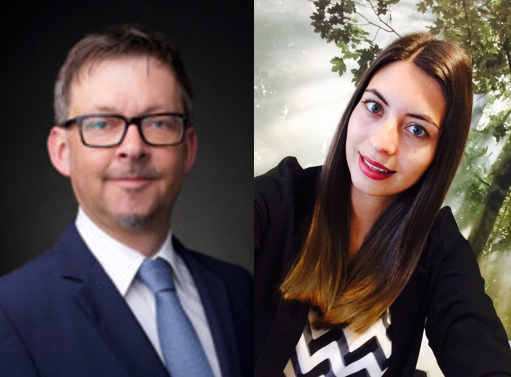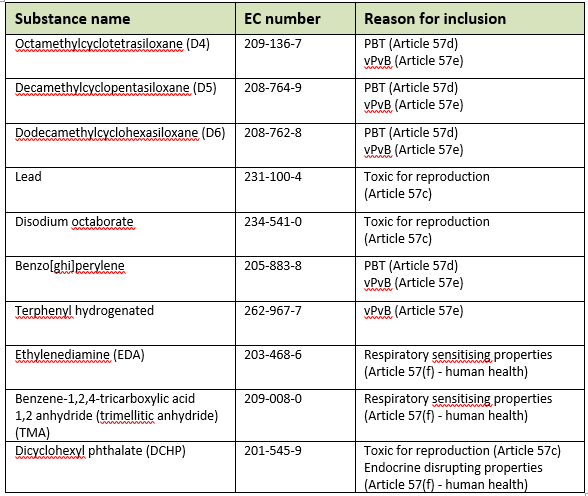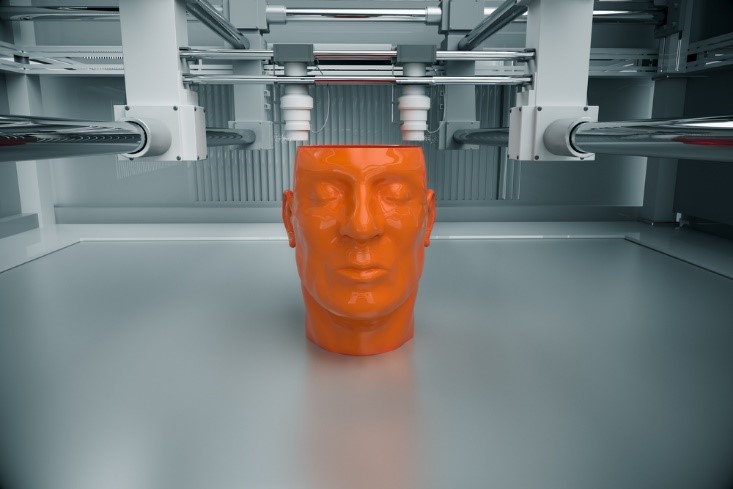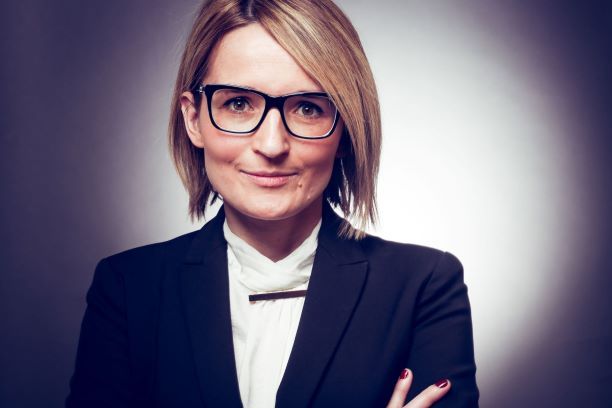We use cookies to personalize content and advertisements, to offer social media functions and to analyze access to our website.
You can revoke the given consent at any time. You can find further information in our Privacy Policy.
Oct 2018
On 23, Oct 2018 | In News @en | By Alisa Maier
 Günther Häufele joined the 1cc team as a Sales Professional in August 2018. Günther completed his Master of Science Degree in History and Political Science at the University of Freiburg. After more than 20 years of sales experience in the software industry and digital media, Günther is looking forward to launch his new career step with 1cc by reinforcing the customer relationship management and acquiring new market segments in the field of environmental compliance.
Lisa Schmidt joined the 1cc team as a Marketing Specialist in October 2018. She started her career as an Industrial Management Assistant at TechProtect GmbH, a sister company of 1cc. In September 2018, Lisa graduated with a Bachelor of Arts in Business Administration from the DHBW (Duale Hochschule Baden-Württemberg) Stuttgart. During her studies, she focused on Marketing and Human Resources. Lisa is looking forward to embarking on her new tasks and responsibilities within the team.
We would like to wish Günter and Lisa success in their new endeavour.
Günther Häufele joined the 1cc team as a Sales Professional in August 2018. Günther completed his Master of Science Degree in History and Political Science at the University of Freiburg. After more than 20 years of sales experience in the software industry and digital media, Günther is looking forward to launch his new career step with 1cc by reinforcing the customer relationship management and acquiring new market segments in the field of environmental compliance.
Lisa Schmidt joined the 1cc team as a Marketing Specialist in October 2018. She started her career as an Industrial Management Assistant at TechProtect GmbH, a sister company of 1cc. In September 2018, Lisa graduated with a Bachelor of Arts in Business Administration from the DHBW (Duale Hochschule Baden-Württemberg) Stuttgart. During her studies, she focused on Marketing and Human Resources. Lisa is looking forward to embarking on her new tasks and responsibilities within the team.
We would like to wish Günter and Lisa success in their new endeavour.
Oct 2018
On 23, Oct 2018 | In News @en | By Alisa Maier
 Hungary is currently examining legislative means for banning the use of plastic shopping bags and has accordingly published a draft to that effect that calls for a complete ban of their use by January 1, 2020.
Upon the completion of this measure, Hungary will have joined most of the other EU member states that are required to transpose EU Directive 2015/720 on reducing the consumption of lightweight plastic carrier bags.
The aim of the European Union Directive is to reduce the current, high consumption of plastic carrier bags and its resulting waste. The European Parliament and its Council make room for the means and ways of implementing the Directive on national levels, e.g. by completely banning plastic bags from supermarkets, or charging consumers with certain fees at points of sale.
If you are interested in finding out more about the different national transpositions and respective requirements for producers throughout Europe, 1cc can help provide a comprehensive overview through customized consulting packages. Please feel free to contact us at: info@1cc-consulting.com
Hungary is currently examining legislative means for banning the use of plastic shopping bags and has accordingly published a draft to that effect that calls for a complete ban of their use by January 1, 2020.
Upon the completion of this measure, Hungary will have joined most of the other EU member states that are required to transpose EU Directive 2015/720 on reducing the consumption of lightweight plastic carrier bags.
The aim of the European Union Directive is to reduce the current, high consumption of plastic carrier bags and its resulting waste. The European Parliament and its Council make room for the means and ways of implementing the Directive on national levels, e.g. by completely banning plastic bags from supermarkets, or charging consumers with certain fees at points of sale.
If you are interested in finding out more about the different national transpositions and respective requirements for producers throughout Europe, 1cc can help provide a comprehensive overview through customized consulting packages. Please feel free to contact us at: info@1cc-consulting.com
Oct 2018
On 23, Oct 2018 | In Copyright Levies, News @en | By Alisa Maier
 After several attempts to amend the EU Copyright Directive 2001/29, the European Parliament voted in favor of amending the Directive on September 12, 2018. However, the expected changes do not affect the copyright remuneration system and foresee no developments in that matter. On the other hand, current national regulations are underway to lay the groundwork for innovations within the system.
France confirmed the levies on specific streaming services on August of this year. Initially, those levies addressing providers of TV and radio programs in the internet were intended to serve as a model, or a temporary solution. Similarly, a legislative proposal is currently underway in Belgium, where online content storage services are to be handled in the same manner as recording devices like tablets, mobile phones, HDD, USB Keys. Proposals in Government hearings in Canada are heading in the same direction: a new proposal reminiscent of the German “household levy” is aiming at including streaming in the copyright levy system. Such an online levy would close the gap between Internet offers and other means of distributing protected contents.
Ultimately and as long as a proposal for a Copyright Directive does not encompass copyright levies, the responsibility will remain in the hands of EU member states to try to confront developing new technologies, such as streaming services and cloud storage, with copyright levies in order to compensate right holders.
After several attempts to amend the EU Copyright Directive 2001/29, the European Parliament voted in favor of amending the Directive on September 12, 2018. However, the expected changes do not affect the copyright remuneration system and foresee no developments in that matter. On the other hand, current national regulations are underway to lay the groundwork for innovations within the system.
France confirmed the levies on specific streaming services on August of this year. Initially, those levies addressing providers of TV and radio programs in the internet were intended to serve as a model, or a temporary solution. Similarly, a legislative proposal is currently underway in Belgium, where online content storage services are to be handled in the same manner as recording devices like tablets, mobile phones, HDD, USB Keys. Proposals in Government hearings in Canada are heading in the same direction: a new proposal reminiscent of the German “household levy” is aiming at including streaming in the copyright levy system. Such an online levy would close the gap between Internet offers and other means of distributing protected contents.
Ultimately and as long as a proposal for a Copyright Directive does not encompass copyright levies, the responsibility will remain in the hands of EU member states to try to confront developing new technologies, such as streaming services and cloud storage, with copyright levies in order to compensate right holders.
Oct 2018
On 23, Oct 2018 | In Conflict Minerals, News @en | By Alisa Maier
 The EU Commission published guidelines on the identification of conflict-affected and high-risk areas and other supply chain risks with respect to the EU Conflict Minerals Regulation 2017/821 on August 17, 2018.
Although not legally binding, the guidelines are designed to help EU importers carry out their supply chain due diligence.
The overall objective of the EU Conflict Minerals Regulation, which is based on the principles set forth in the OECD Guidance, is to enable the development of secure, transparent and verifiable supply chains of minerals. Moreover, the aim is to ensure responsible import practices of minerals and metals from conflict-affected and high-risk areas into the EU, without contributing to armed conflict and associated human rights abuse.
The EU Commission published guidelines on the identification of conflict-affected and high-risk areas and other supply chain risks with respect to the EU Conflict Minerals Regulation 2017/821 on August 17, 2018.
Although not legally binding, the guidelines are designed to help EU importers carry out their supply chain due diligence.
The overall objective of the EU Conflict Minerals Regulation, which is based on the principles set forth in the OECD Guidance, is to enable the development of secure, transparent and verifiable supply chains of minerals. Moreover, the aim is to ensure responsible import practices of minerals and metals from conflict-affected and high-risk areas into the EU, without contributing to armed conflict and associated human rights abuse.
Oct 2018
Oct 2018
 The use of a Substance of Very High Concern in an article may require information obligations according to Art. 33 and notification obligations according to Art. 7.
Link to ECHA’s Website: www.echa.europa.eu/-/ten-new-substances-added-to-the-candidate-list
The use of a Substance of Very High Concern in an article may require information obligations according to Art. 33 and notification obligations according to Art. 7.
Link to ECHA’s Website: www.echa.europa.eu/-/ten-new-substances-added-to-the-candidate-list
Sep 2018
Aug 2018
On 27, Aug 2018 | In Copyright Levies, News @en | By Alisa Maier
 n this background, 3D printers with the obvious potential to reproduce protected works are also considered as devices subject to copyright levies. The technological developments in 3D printers have repeatedly triggered discussions about the issues of copyright law and more precisely around copyright levies. Czech Republic and France are among the many countries thriving such discussions. Furthermore, a study conducted by the WIPO (World Intellectual Property Organization) in 2015 deals with the questions at stake.
In general, the EU Parliament considers the impact of 3D printers as important, evaluating potential copyright infringements of authors and artists. Therefore, EU Parliament approved the Resolution 2017/2007 (INI) with the intention to regulate innovative products such as 3D printers by copyright law. Moreover, this resolution proposes that similar products, such as 3D printers and normal printers – 2D printers are subject to copyright levies in many countries – should be regulated by the same legal basis.
n this background, 3D printers with the obvious potential to reproduce protected works are also considered as devices subject to copyright levies. The technological developments in 3D printers have repeatedly triggered discussions about the issues of copyright law and more precisely around copyright levies. Czech Republic and France are among the many countries thriving such discussions. Furthermore, a study conducted by the WIPO (World Intellectual Property Organization) in 2015 deals with the questions at stake.
In general, the EU Parliament considers the impact of 3D printers as important, evaluating potential copyright infringements of authors and artists. Therefore, EU Parliament approved the Resolution 2017/2007 (INI) with the intention to regulate innovative products such as 3D printers by copyright law. Moreover, this resolution proposes that similar products, such as 3D printers and normal printers – 2D printers are subject to copyright levies in many countries – should be regulated by the same legal basis.
Jul 2018
On 19, Jul 2018 | In News @en | By Alisa Maier
 Sylwia Patron-Ravidà joined the 1cc team as a Consultant with focus on WEEE, Batteries and Packaging compliance issues in March 2018.
Sylwia holds a master’s degree in political science from Maria-Curie-Skłodowska-University in Lublin, Poland, and is currently in the final stages of her doctoral studies at the Graduate School of Politics at University of Münster.
Sylwia has a three years’ teaching experience at the Institute of Political Science in Münster. Before, she worked as a consultant at a Polish consulting firm specialized in the field of economic and innovation policy and at a German consulting company providing its clients with a wide range of services, covering the whole lifecycle of cross-border projects.
Sylwia Patron-Ravidà joined the 1cc team as a Consultant with focus on WEEE, Batteries and Packaging compliance issues in March 2018.
Sylwia holds a master’s degree in political science from Maria-Curie-Skłodowska-University in Lublin, Poland, and is currently in the final stages of her doctoral studies at the Graduate School of Politics at University of Münster.
Sylwia has a three years’ teaching experience at the Institute of Political Science in Münster. Before, she worked as a consultant at a Polish consulting firm specialized in the field of economic and innovation policy and at a German consulting company providing its clients with a wide range of services, covering the whole lifecycle of cross-border projects.
Jul 2018